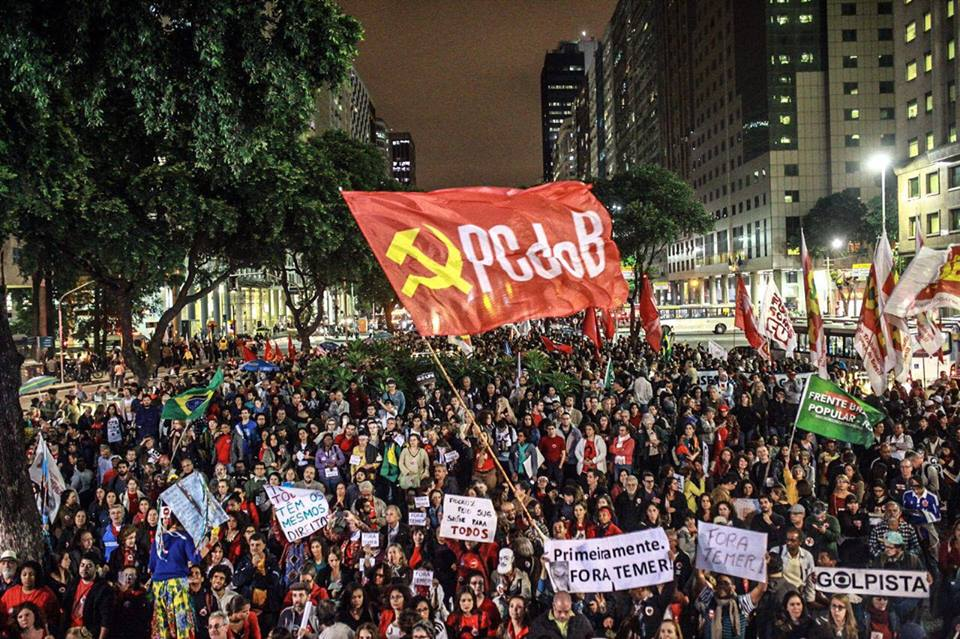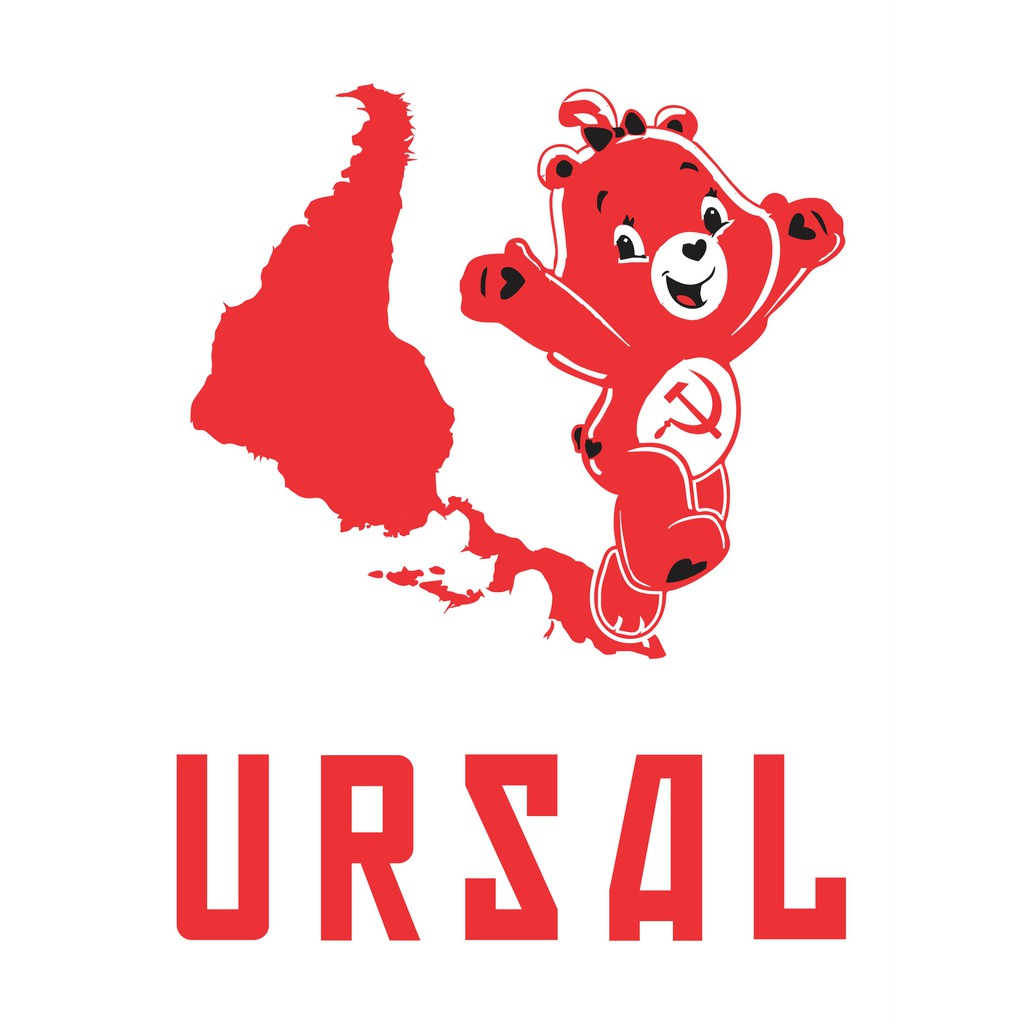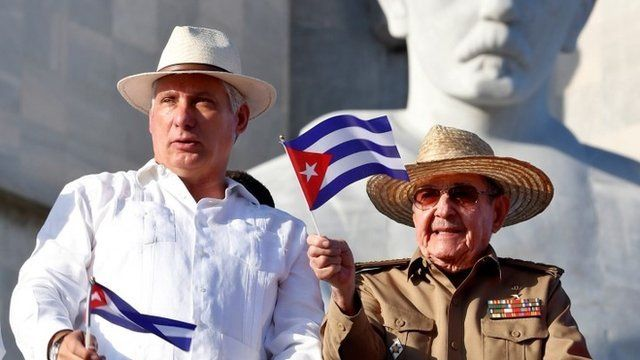The Communist Party – Brazilian Section of the Communist International (Partido Comunista – Seção Brasileira da Internacional Comunista, PC-SBIC) was founded on 25 March 1922, gathering Brazilian Communists under the same label until the international rupture in the movement that occurred after the 20th Congress of the Communist Party of the Soviet Union (CPSU) in 1956, and the 5th Congress of the PC-SBIC in 1960, when Brazilian Communists found themselves divided into two tendencies. At the 20th Congress of the CPSU, Nikita Khrushchev had delivered the so-called "Secret Speech", which denounced the abuses committed by the Soviet state under Joseph Stalin's rule. Khrushchev was considered a revisionist by supporters of the late Stalin, which led to a rupture in the Communist movement in various countries.
In Brazil, the rupture reached the party leadership, which had rebuilt PC-SBIC after the setbacks it suffered under the Estado Novo regime (1930–1945), which tried to pit workers against the party and violently repressed it. The party leadership prior to the rupture, primarily composed of revisionists, was formed in 1943 by João Amazonas, Maurício Grabois, Pedro Pomar, Diógenes Arruda Câmara, and Secretary General Luís Carlos Prestes, among others.
PC-SBIC (1922–1962)
The PC-SBIC was ideologically grounded in the writings of Karl Marx and Friedrich Engels, and in the actions of Vladimir Lenin in the aftermath of the October Revolution, advocating democratic centralism and Marxism–Leninism. It was launched on 25 March 1922 in Niterói, Rio de Janeiro, when members of the Brazilian working class took their first big step towards arranging themselves under a class organization; nine delegates, representing 50 workers, held a Congress and founded the PC-SBIC. On 4 April 1922, it was recognized as a political party by the federal government, with its manifesto being published in the Official Gazette. Following the international guidance, the party was given the name of Communist Party – Brazilian Section of the Communist International.
A series of influential parties in the Brazilian political scene emerged from the PC-SBIC, such as the Brazilian Communist Party (PCB) and the Revolutionary Communist Party (PCR), in addition to many Trotskyist and Stalinist groups. The international rupture that arose in the Communist movement after 1956 caused the PC-SBIC to split on 18 February 1962, during its 5th National Congress.
Reorganization of the Communist Party of Brazil
The National Party Conference (Conference of Mantiqueira) was held on 11 August 1943. The Conference reviewed the political situation and the tasks of the Party, politics, and tasks of construction and rebuilding to which it must attend. A new Central Committee was elected, for the old leadership and the party organization was almost torn apart due to arrests by the police.
The 2nd Reorganization (18 February 1962)
At the 5th National Conference Meetings, held on 18 February 1962, in São Paulo, with the dissent of Marxist-Leninist tendencies, the party was reorganized. Embracing the acronym and symbol PCdoB, the party was proclaimed the legitimate successor of the Communist Party – Brazilian Section of the Communist International (PC-SBIC). In opposition to the revisionist line of the 5th Congress, the Conference adopted the Manifesto-Program, which draws a revolutionary line, reintroduced the Statute adopted at the Fourth Congress, adopted a resolution on the unity of the Communists, signed the principle that each country can only exist a single Marxist–Leninist party, decided to reissue The Working Class, a former central organ of the Party, approved the break with the USSR, and, finally, elected a new Central Committee.
Maoist guideline (1962–1969)
The crisis between the Soviet Union and China reached its peak when the Chinese leader Mao Zedong criticized the ongoing process of de-Stalinization in the USSR, and accused Khrushchev of "opportunistic" and "reformist" deviations. A division of Mao with the rest of the communist movement attracted the sympathy of the PCdoB, who sent emissaries to Beijing to formalize the ideological link with the new ideological guidelines of the Chinese Communist Party.
However, adherence to Maoism included a shift in the strategies of the PCdoB. Following the principle of protracted people's war, PCdoB undertook to transfer ideology to the field, initiating the formation of a peasant army.
The final adoption of Maoism by the PCdoB was in 1966 at its 6th Congress. The following year, the party drew up a declaration in support of the Cultural Revolution underway in China.
The Araguaia Guerrilla (1969–1976)
Forward from 1966, PCdoB sought to form a nucleus guerrilla camp. The area chosen for the irradiation of the future peasant army (along a Maoist line) was a region south of Para, near the border with Tocantins. The most effective guerrilla of the PCdoB column (under the name "Araguaia Guerrilla Force") was composed of high school and college students, organized around the Patriotic Union of Youth (UJP, youth wing of the party), professionals, and workers mainly from São Paulo and Minas Gerais.
In 1971, Army units discovered the location of the guerrilla nucleus and were deployed to cordon off the area, preventing it from spreading its operations to the north of the Amazon. The defeat of the Araguaia would establish the ideal of the PCdoB guerrillas as the most effective and experienced of armed struggle the dictatorship. The Araguaia Guerrilla redefined the dictatorship's plans for the Amazon region, whose repressions in the region were hidden long after the dictatorship's fall.
The abandonment of Maoism (1976–1979)
Shorn of its main cadres, PCdoB began to regroup with staff from the PA leadership and staff of João Amazonas, who, with Diógenes Arruda, were the last remnants of the group that rebuilt the party in 1962. Arruda's death (in 1979) left Amazonas as Secretary of the PCdoB until his death.
Observing the failure of the rural guerrilla and the new policy adopted by China since Mao's death in 1976, PCdoB decided to break with Maoism. In 1978, the party followed Enver Hoxha in his criticism of Chinese leaders, and considered Albania alone as a socialist country, the last bulwark of Marxism-Leninism.
The path to legalization (1979–1987)
In 1978, the party had begun participating in institutional action through the MDB, the moderate opposition to the military government. PCdoB resumed its parliamentary activity and secretly elected its first MPs from within the MDB.
In 1979, with the granting of Amnesty, PCdoB found a favorable environment for their penetration of the unions and student organizations. The party was opposed to the CUT (trade union arm of the PT). The rebuilding of UNE (1979) with Aldo Rebelo marked the beginning of the hegemony of the party in university entity. In 1984, PCdoB founded the Union of Socialist Youth (UJS), its youth wing. In elections to the Constituent Assembly of 1986, PCdoB elected six deputies, including Haroldo Lima, and Aldo Arantes
A socialist program (1987–1995)
The social and economic crisis that followed the Cruzado Plan (1987) led PCdoB to break the PMDB. In its place, the party sought a broader alliance with the PT and the PSB. In 1988, trade unionists PCdoB broke with the General Workers Central and formed the current Class Union, which then became part of the CUT, currently connected to the CTB.
In 1989, along with the PSB, PCdoB supported the candidacy of PT's Luiz Inácio Lula da Silva for the presidency. Also with the PT, PCdoB also was in opposition to the government of Fernando Collor. PCdoB argued for his removal, which occurred in September 1992 with large student demonstrations, participated in by the UJS along with the UBEs and UNE.
Lula administration and opposition to neoliberalism
In the late 1980s, PCdoB supported the formation of a popular front to launch Luiz Inácio Lula da Silva's candidacy for President. Since then, it has been a member of all electoral coalitions led by the Workers' Party (PT) at the federal level. It has also allied itself with the PT in most states and capitals.
The PCdoB has registered a generally steady increase in its number of seats in the National Congress since the 1986 elections, the first parliamentary elections which the party contested. With the victory of Lula in 2002, PCdoB became part of the federal government, occupying the Ministry of Sports; first with Agnelo Queiroz, and later with Orlando Silva. This was the first time that a Communist occupied a Ministry of the Brazilian state.
Although critical of the economic policy of the Lula administration, PCdoB maintained its support to PT. In 2006, when Lula sought his re-election, the party formalized its participation in his alliance.
At the end of 2007, its divergences with PT began to increase, and PCdoB abandoned the Central Única dos Trabalhadores (CUT) trade union organization, and, along with the Brazilian Socialist Party and other independent sections of the union movement, it founded the Central of Male and Female Workers of Brazil (CTB).
The PCdoB suffered a major decline during the 2020 municipal elections, from 86 elected in 2016 to 46 mayors elected in 2020. The region that elected the most PCdoB candidates was the Northeast region , in the states of Bahia and Maranhão.
The 15th National Congress of the PCdoB took place in October 2021 and re-elected Luciana Santos as the party's president for the next four years. The event was named “ Haroldo Lima ” in honor of the historic communist leader who died this year due to Covid-19 and marked the preparations for the party's centenary. At the event, a political resolution was also approved focusing on strengthening the party and the fight to build a broad front to isolate and defeat the Bolsonaro government.
Megathreads and spaces to hang out:
- 📀 Come listen to music and Watch movies with your fellow Hexbears nerd, in Cy.tube
- 🔥 Read and talk about a current topics in the News Megathread
- ⚔ Come talk in the New Weekly PoC thread
- ✨ Talk with fellow Trans comrades in the New Weekly Trans thread
- 👊 Share your gains and goals with your comrades in the New Weekly Improvement thread
reminders:
- 💚 You nerds can join specific comms to see posts about all sorts of topics
- 💙 Hexbear’s algorithm prioritizes comments over upbears
- 💜 Sorting by new you nerd
- 🌈 If you ever want to make your own megathread, you can reserve a spot here nerd
- 🐶 Join the unofficial Hexbear-adjacent Mastodon instance toots.matapacos.dog
Links To Resources (Aid and Theory):
Aid:
Theory:



I think this is autocorrect for Khrushchev